Top seven books about North Korea
From anecdotes of defectors to histories of the nation, there is plenty of good literature on the hermit kingdom
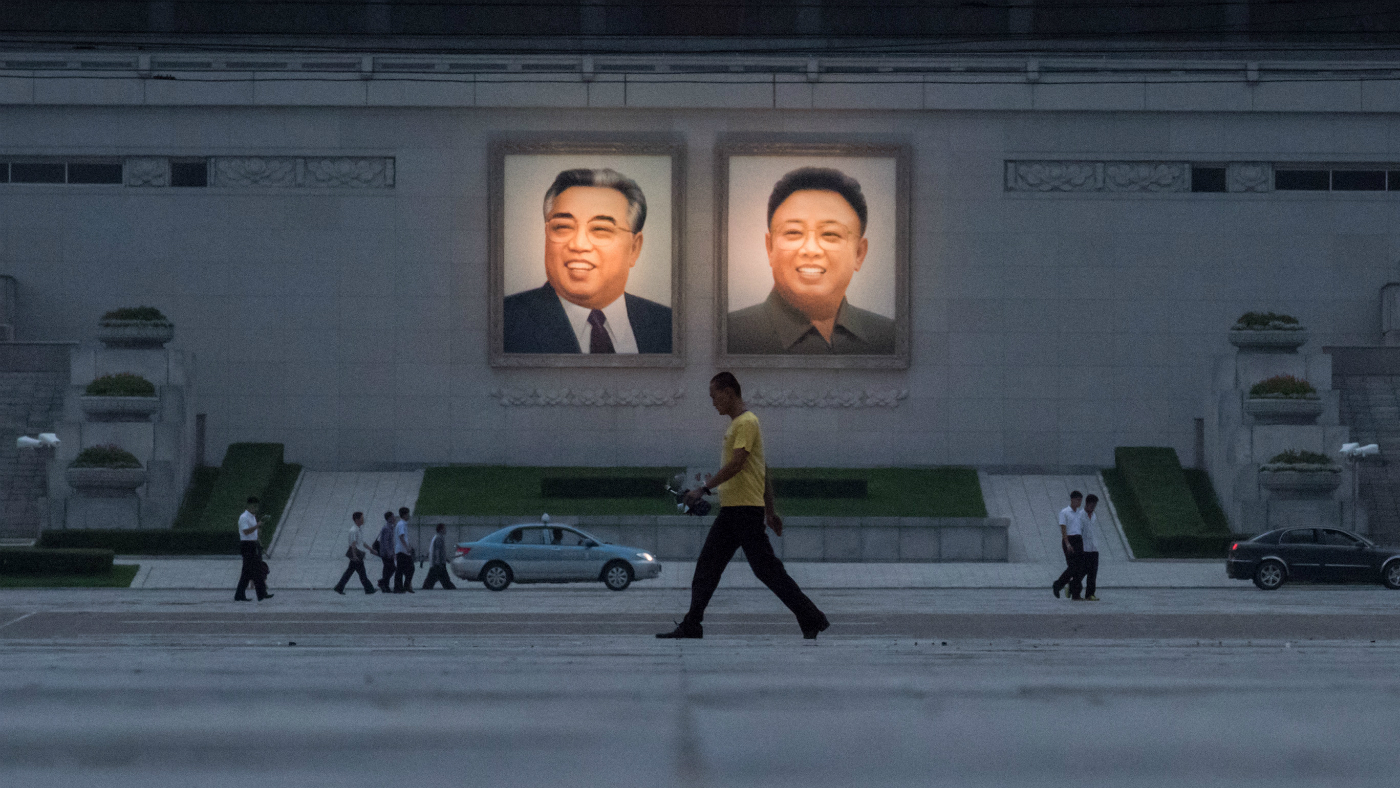
A free daily email with the biggest news stories of the day – and the best features from TheWeek.com
You are now subscribed
Your newsletter sign-up was successful
The historic summit between North Korean leader Kim Jong Un and US President Donald Trump has put the so-called hermit kingdom back into the world's spotlight.
For those clamouring to gain more insight into the authoritarian regime rules the country, here are five of the best books by some of the world’s leading authorities.
Nothing to Envy, by Barbara Demick
The Week
Escape your echo chamber. Get the facts behind the news, plus analysis from multiple perspectives.

Sign up for The Week's Free Newsletters
From our morning news briefing to a weekly Good News Newsletter, get the best of The Week delivered directly to your inbox.
From our morning news briefing to a weekly Good News Newsletter, get the best of The Week delivered directly to your inbox.
Perhaps the most famous book on North Korean, Nothing To Envy was released in 2009 to significant acclaim.
Barbara Demick’s novel is an adaptation of anecdotes told by six North Korean defectors, who share their stories of poverty, tyranny and hardship under the regime, along with photos smuggled out of the country.
It shows how their lives - and the fate of the nation - tumbled perilously close to collapse as the regime struggled to navigate the transition between the death of the country’s founder Kim Il Sung and the rise of his son, Kim Jong Il, in the early 1990s.
The Observer's Imogen Carter writes: “Demick's important book, by illuminating previously hidden aspects of North Korean life, helps restore humanity to some of the world's most oppressed people.”
A free daily email with the biggest news stories of the day – and the best features from TheWeek.com
The Aquariums of Pyongyang, by Kang Chol Hwan and Pierre Rigoulot
Kang Chol Hwan is the first recorded survivor of a North Korean concentration camp to escape the country and tell his story to the world, according to Amazon Books, and his memoir The Aquariums of Pyongyang “reveals the human suffering in his camp, with its forced labour, frequent public executions and near-starvation rations”.
“It’s part horror story, part historical document, part memoir, part political tract,” the site says.
No visitor to North Korea, however keen-sighted, will “glimpse a trace of its gulags” but “they have never been a complete mystery,” The Guardian’s John Gittings writes. Now, however, “defectors to the South, no longer manipulated as in the past by South Korea's KCIA, tell credible stories of the camps, of which The Aquariums of Pyongyang is the most accessible example.”
North of the DMZ, by Andrei Lankov
“Lankov is these days one of the leading experts on North Korea, but in the 80s he was a young Soviet student in Pyongyang,” DB John writes in The Guardian. “This collection of vignettes, written with humour and wit, curates all kinds of fascinating details.”
Again focusing on anecdotes of defectors, Andrei Lankov, a Russian scholar who lived as an exchange student in North Korea in the 1980s, tells the story of the brutal regime through the eyes of its subjects.
Lankov uses the latter stages of the book to discuss the significant social and political changes that have taken place in the country over the last decade, “concluding that these changes will lead to the quiet but inevitable death of North Korean Stalinism”, Good Reads says.
The Impossible State: North Korea, Past and Future, by Victor Cha
Eschewing the emotional draw of personal stories of hardship, the former US foreign policy adviser Victor Cha tackles the causes and effects of the pompous grandiosity of North Korea.
Cha’s authority on the subject and credentials are hard to dispute. He led the US delegation to the six-party talks in 2003, a series of negotiations attempting to push North Korea toward peaceful denuclearisation that ultimately broke down later in the decade.
In the era of Trump and with North-South relations at a vital and tentative crossroads, this authoritative account of the country “offers much-needed answers in an increasingly uncertain political climate”, says Penguin Books.
“Indeed, Cha warns of a future North Korea for which the Western world may be woefully unprepared.”
Without You, There Is No Us, by Suki Kim
Offering a unique insight into North Korean life, Suki Kim’s Without You, There Is No Us gives readers a detailed description of the personal lives of its ruling class.
The book is a dark, fascinating memoir of the Korean-American author’s 2011 six-month stint as a visiting English instructor at a North Korean university, and her account - which includes the death of Kim Jong Il on her final day in the country - offers a rare glimpse into the decadent, warped bourgeois of a society that frequently falls back on its self-proclaimed Communist ideology.
“It’s the only book I know of that really grasps the mind-set of the North Korean elite,” says Barbara Demick. “Complete with the deception and self-deception necessary to survive in that regime.”
The Girl with Seven Names: A North Korean Defector’s Story, by Hyeonseo Lee
Severe, brutal and yet surprisingly optimistic, The Girl with Seven Names is the tale of one woman's death-defying struggle to avoid capture and guide her family to freedom.
The book was a huge success upon its release in 2015, and became a New York Times bestseller. The book’s gruesome details form a backdrop for the desperately sad theme of the book - that being born a North Korean is, for most, a death sentence for any creativity or success.
“She also shows the price the regime pays for being awful: the loss of people like her who have enormous drive, intelligence and will,” the Star Tribune says. “Under different circumstances, they could be making North Korea a better country rather than running for their lives from it.”
North Korea: State of Paranoia, by Paul French
A change of pace from author Paul French, this is an all-encompassing crash course on the history and politics of the North, giving an instructive account of day-to-day life in the capital Pyongyang. This is North Korea’s ideology, culture and worldview boiled down to its essence, and one of the most informative introductory offerings currently available.
The book occasionally makes for grim reading, but its scope is both vast and pointed. “It is refreshing to find an author who is willing to approach the country soberly,” The Guardian’s Jonathan Steele writes, “analysing its tumultuous history, regional context and difficult relations with its allies”.
As the Financial Times says, French’s book is “written with a brisk confidence” and “also manages to have the occasional bit of fun”, while Steele adds that it is “a clear and calm survey of one of the hardest countries in the world to report on”.
-
 How the FCC’s ‘equal time’ rule works
How the FCC’s ‘equal time’ rule worksIn the Spotlight The law is at the heart of the Colbert-CBS conflict
-
 What is the endgame in the DHS shutdown?
What is the endgame in the DHS shutdown?Today’s Big Question Democrats want to rein in ICE’s immigration crackdown
-
 ‘Poor time management isn’t just an inconvenience’
‘Poor time management isn’t just an inconvenience’Instant Opinion Opinion, comment and editorials of the day
-
 A House of Dynamite: a ‘nail-biting’ nuclear-strike thriller
A House of Dynamite: a ‘nail-biting’ nuclear-strike thrillerThe Week Recommends ‘Virtuoso talent’ Kathryn Bigelow directs a ‘fast-paced’ and ‘tense’ ‘symphony of dread’
-
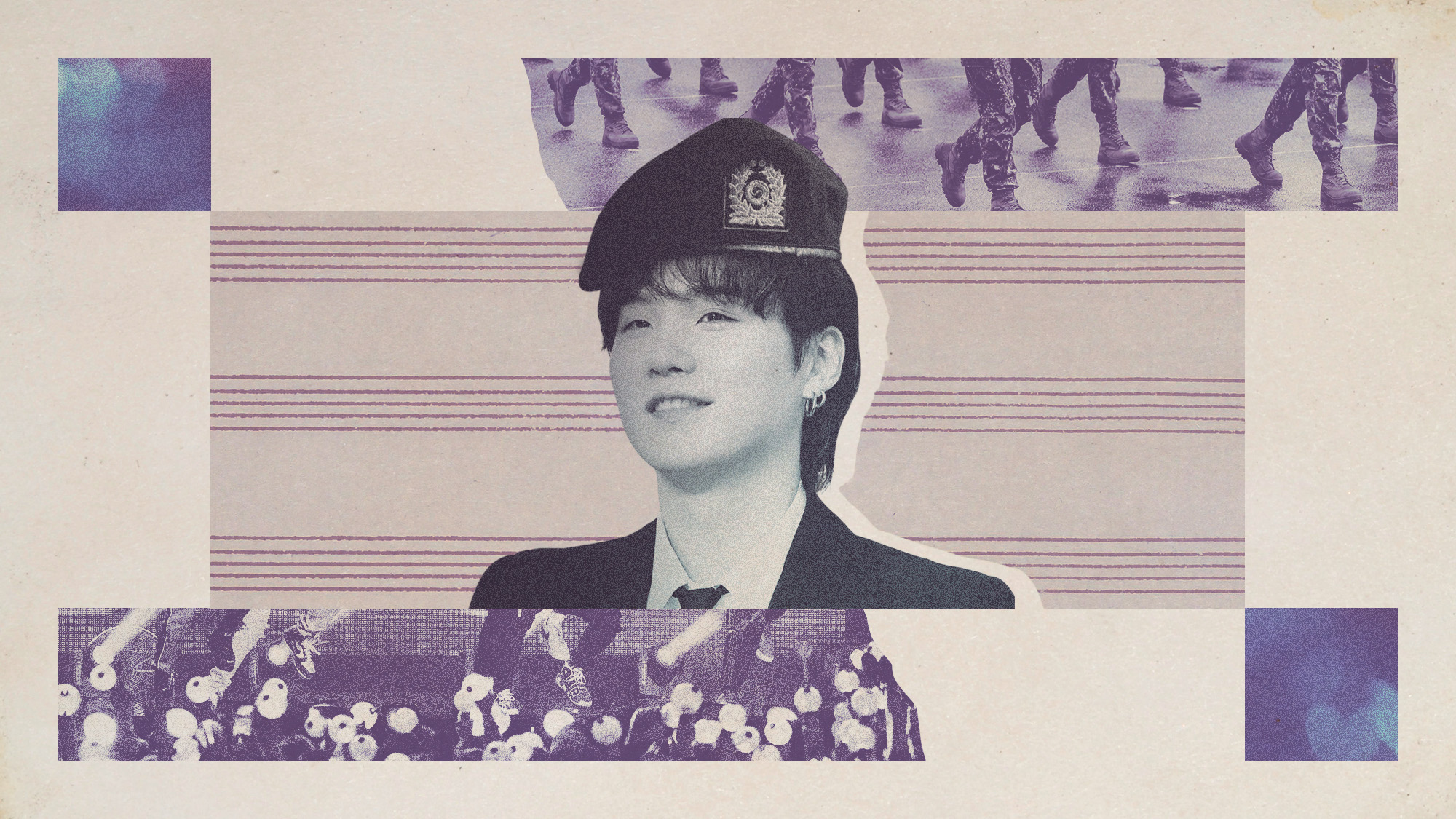 How military service works for K-pop idols
How military service works for K-pop idolsUnder The Radar All seven members of K-pop sensation BTS have now completed mandatory national service
-
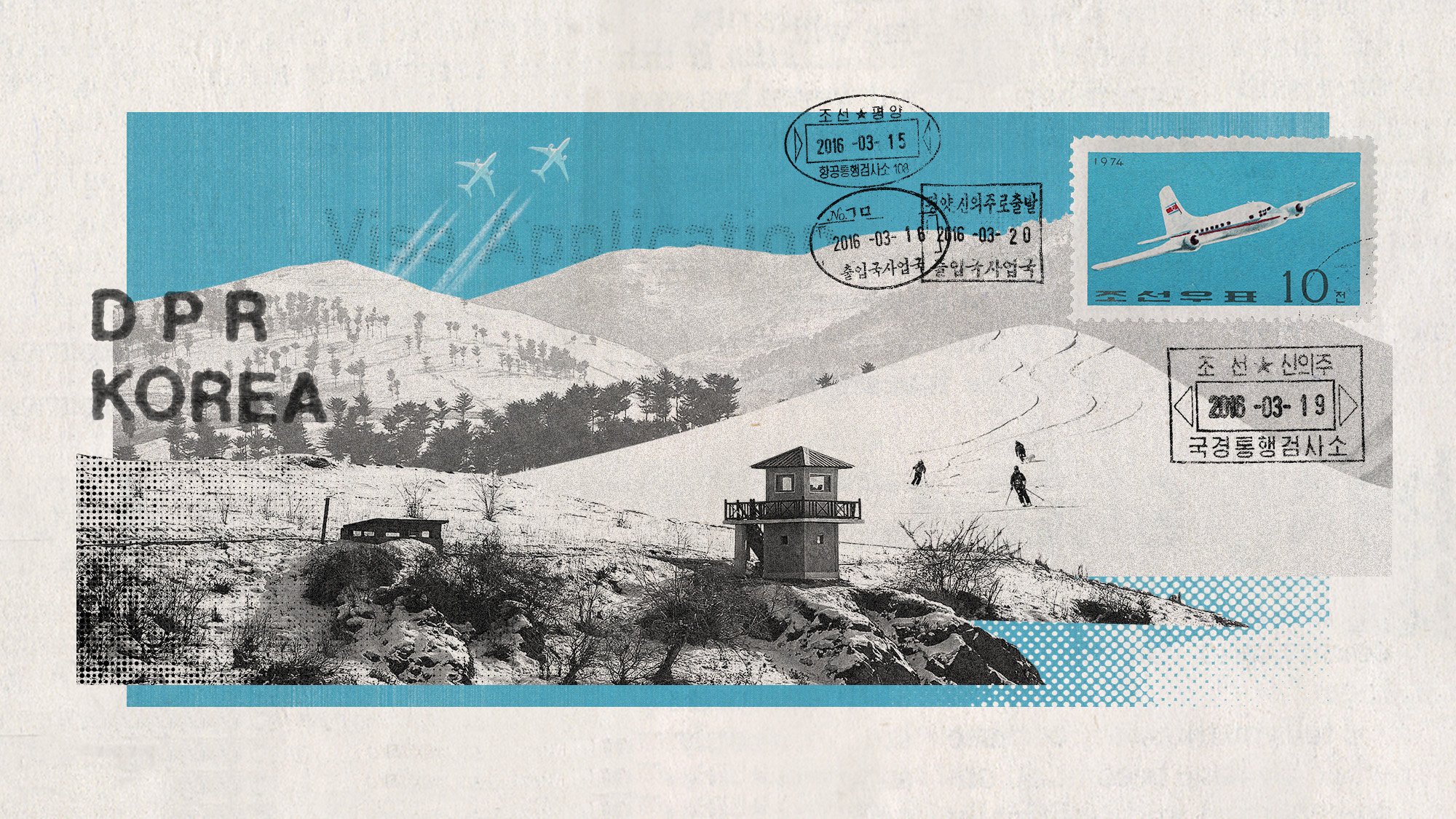 North Korea (sort of) welcomes tourists again
North Korea (sort of) welcomes tourists againUnder the Radar 'Hermit kingdom' allows foreign visitors for the first time since 2020 – but only in limited areas
-
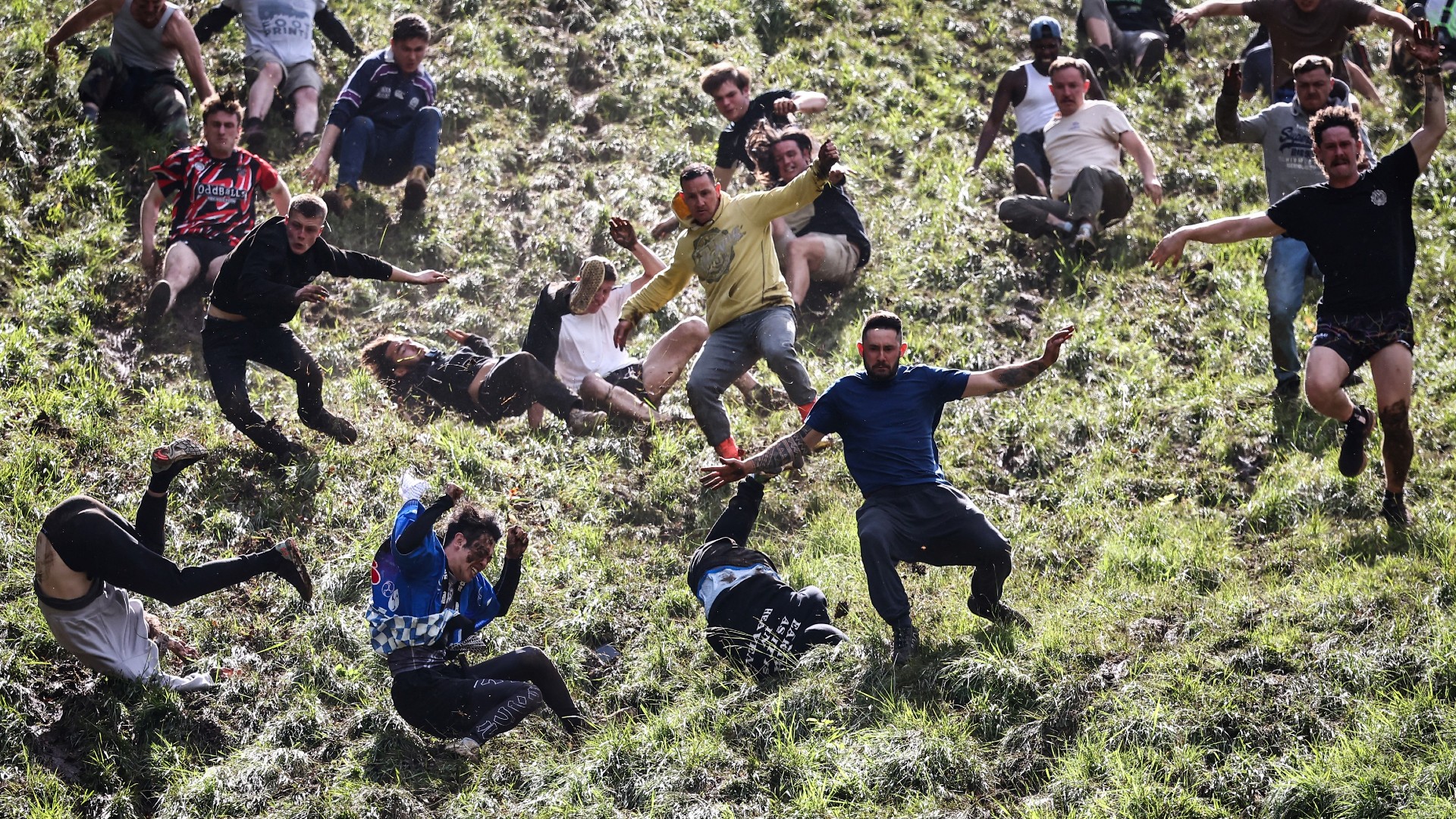 Tall Tales: thousands slip in Gloucestershire cheese-rolling race
Tall Tales: thousands slip in Gloucestershire cheese-rolling raceTall Tales The Week's round-up of the latest odd news
-
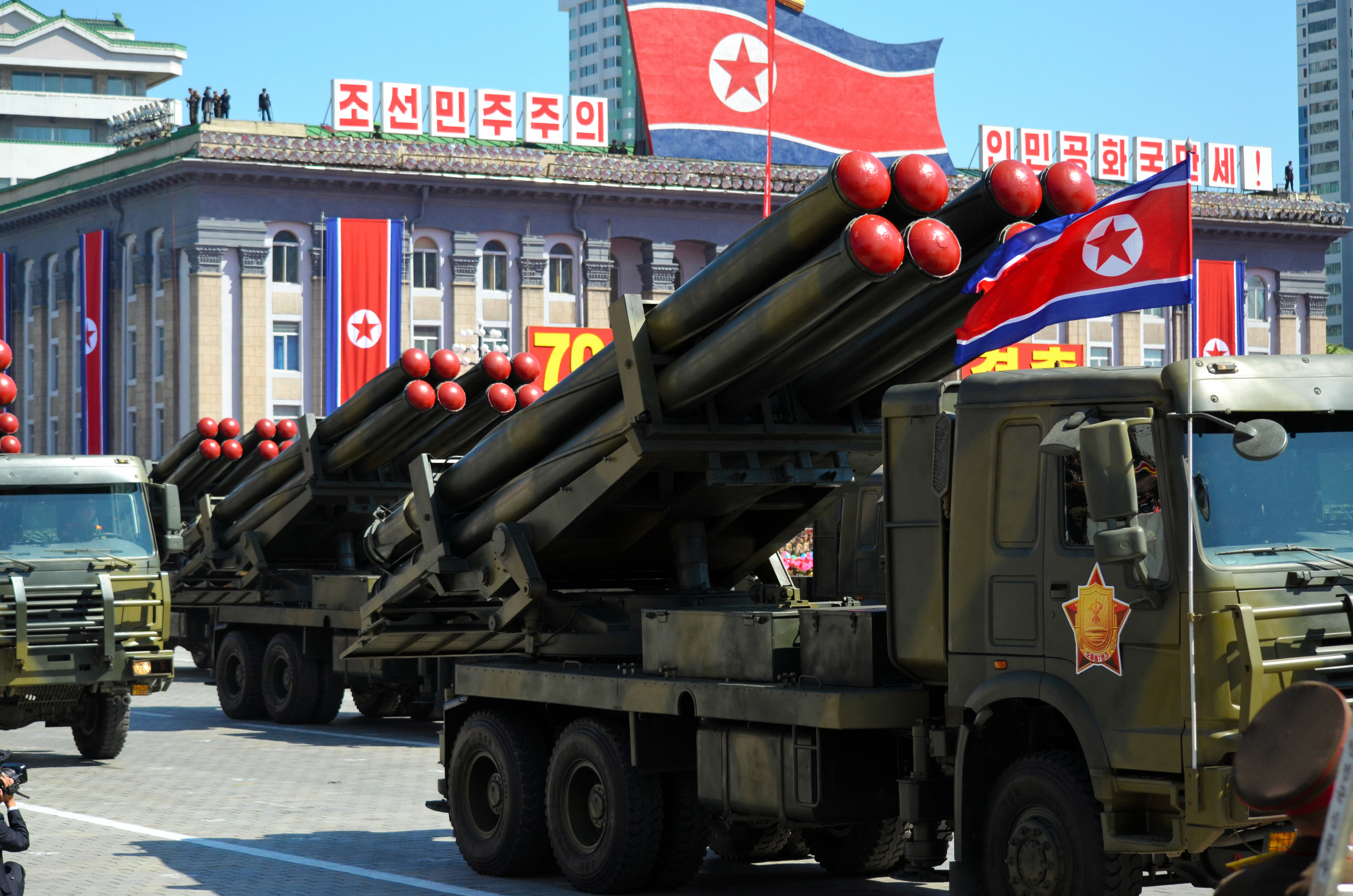 U.S. accuses North Korea of sending artillery shells to Russia
U.S. accuses North Korea of sending artillery shells to RussiaSpeed Read
-
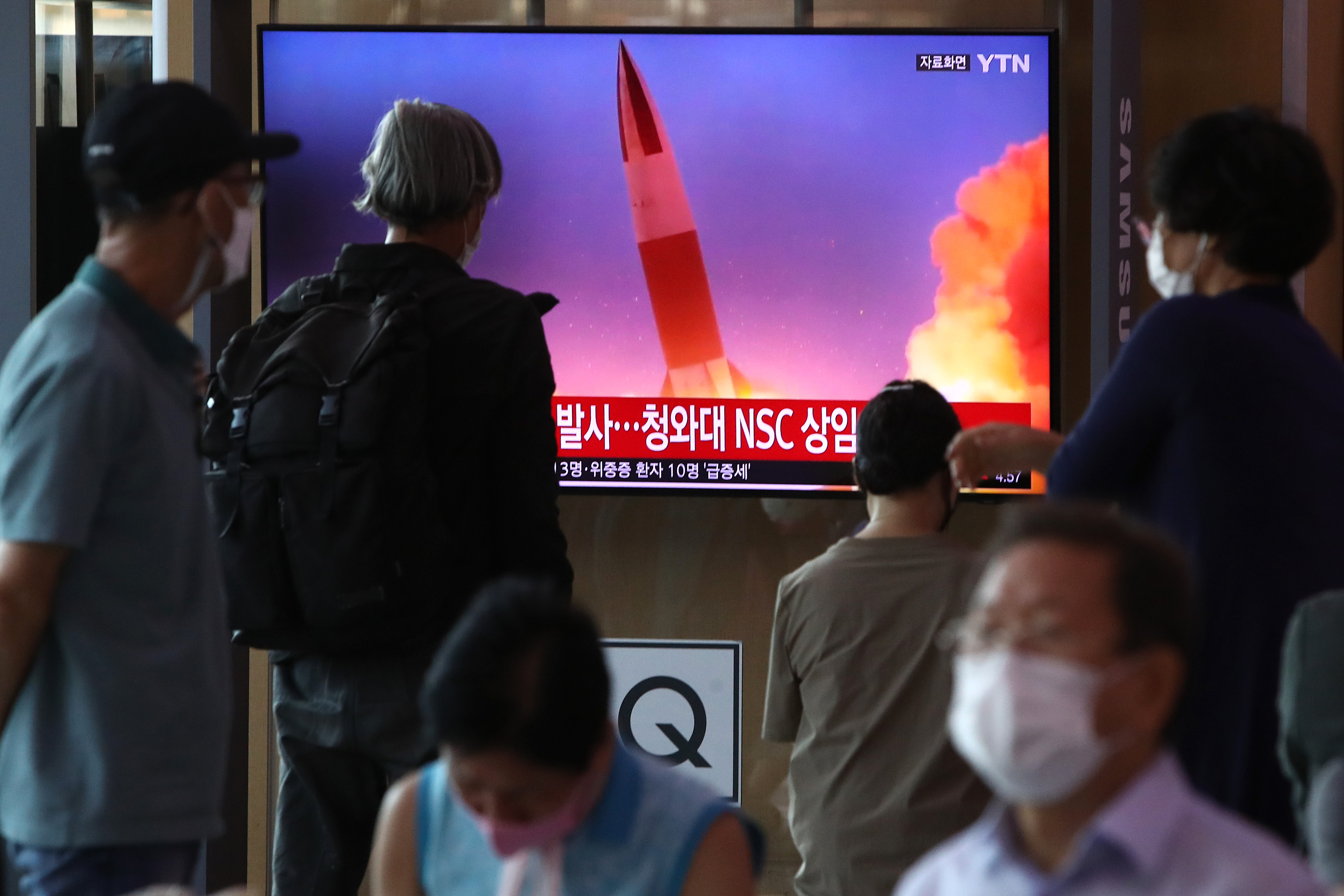 North and South Korea test ballistic missiles as Chinese envoy visits Seoul to restart nuclear talks
North and South Korea test ballistic missiles as Chinese envoy visits Seoul to restart nuclear talksSpeed Read
-
 North Korea vows to blow up airdropped copies of The Interview
North Korea vows to blow up airdropped copies of The InterviewSpeed Read